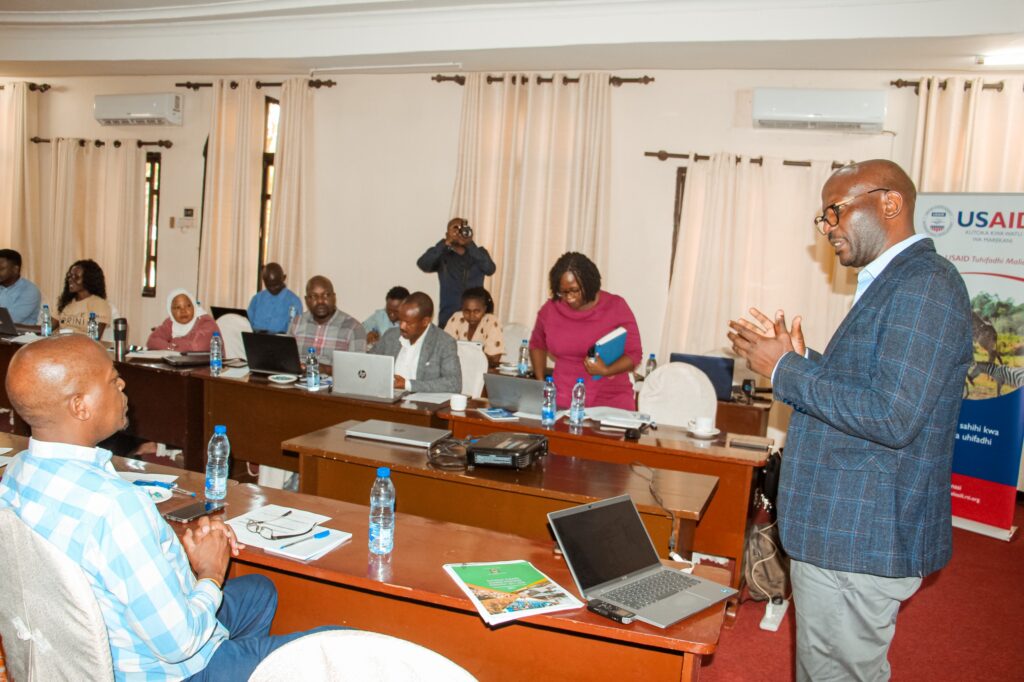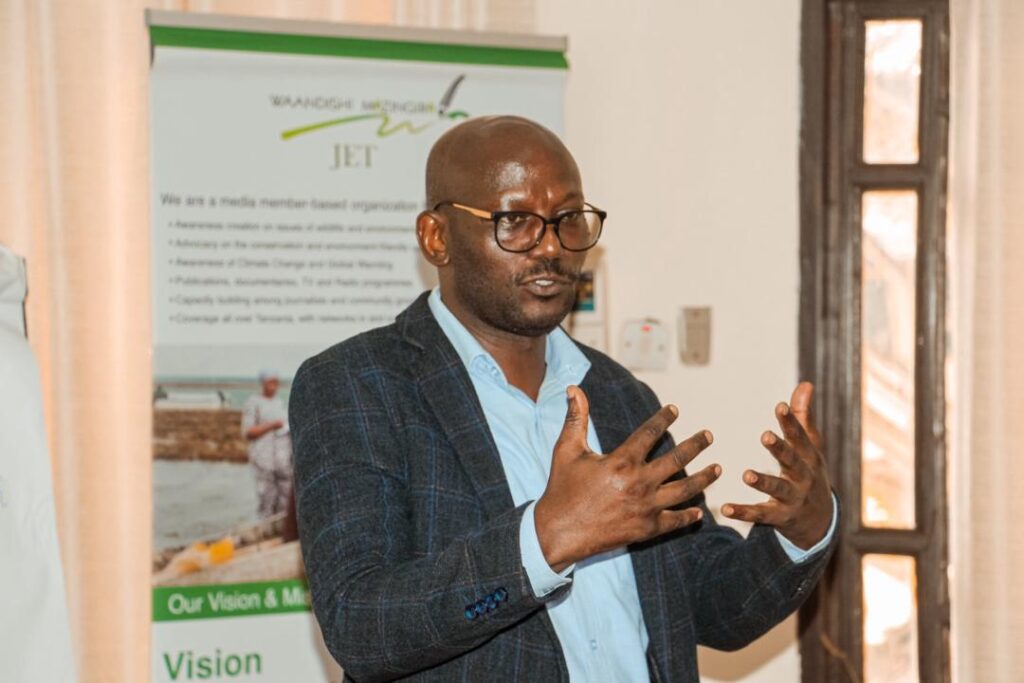To effectively address the challenges arising from climate change and the ensuing conflicts between animals and humans in wildlife corridors, collaborative efforts between governments and non-governmental organizations (NGOs) are imperative.
Urging government intervention, Dr Elikana Ngallaba, the Private Sector Engagement Manager in the USAID Environmental Conservation Project from the RTI organization, provided valuable insights during a training session for journalists organized by the Journalists for Environmental Reporting Tanzania (JET) under the USAID Conservation of Natural Resources project.
Collaborative efforts between governments and Non-governmental organizations (NGOs) are needed to assist communities assist communities residing in wildlife corridors to withstand the impacts of climate change, aiming to address the escalating conflicts between animals and humans.
Dr Ngallaba emphasized that climate change leads to drought, causing water sources to dry up and affecting food production. Consequently, wildlife invades human settlements in search of water and pastures, while humans engage in hunting for sustenance, intensifying conflicts between the two.
“In such encounters between humans and wildlife, we see an increase in conflicts. Animals like lions invade livestock, and herders, in turn, encroach into protected areas in search of water and grazing lands,” he explained.

He stressed that collaborative efforts between the government and the private sector would facilitate the fight against climate change and ensure that citizens can produce in their areas without causing conflicts.
Through the project, they are working with various stakeholders to demarcate wildlife corridors, allowing community activities to continue without disrupting wildlife systems and preventing conflicts.
Additionally, they empower village residents through various projects, including providing loans and training for business ventures, as well as educating them on different strategies to cope with climate change, such as temporarily closing grazing areas during periods of drought.
Doroth Nyoni, the Monitoring and Evaluation Officer of the project, highlighted their commitment to increasing the involvement of women in conservation.
Through the project, 1,872 women will receive leadership training, with 700 already reached at the village level. The project also conducts campaigns to educate primary and secondary school students living in wildlife corridors on the proper conservation of natural resources in their areas.
Allen Mgaza, the Director of the Policy and Natural Resources Management Unit, mentioned that besides climate change, wildlife faces the challenge of illegal hunting for trade. To counteract this, the ministry collaborates with non-governmental organizations, conservation stakeholders, and communities to address the issue collectively.
John Chikomo, the Director of JET, stated that they have been providing climate change training for journalists since 1991 to expand their knowledge and reduce challenges, particularly in wildlife corridors. JET is currently implementing the USAID Conservation of Natural Resources project, focusing on seven corridors in Tanzania, a five-year initiative.
In total, 20 journalists from both mainland Tanzania and Zanzibar have undergone this training, representing various government and private media outlets.



Thank you for your sharing. I am worried that I lack creative ideas. It is your article that makes me full of hope. Thank you. But, I have a question, can you help me?